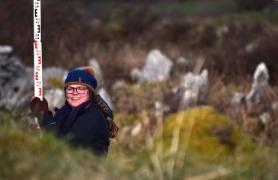-
Courses

Courses
Choosing a course is one of the most important decisions you'll ever make! View our courses and see what our students and lecturers have to say about the courses you are interested in at the links below.
-
University Life

University Life
Each year more than 4,000 choose University of Galway as their University of choice. Find out what life at University of Galway is all about here.
-
About University of Galway

About University of Galway
Since 1845, University of Galway has been sharing the highest quality teaching and research with Ireland and the world. Find out what makes our University so special – from our distinguished history to the latest news and campus developments.
-
Colleges & Schools

Colleges & Schools
University of Galway has earned international recognition as a research-led university with a commitment to top quality teaching across a range of key areas of expertise.
-
Research & Innovation

Research & Innovation
University of Galway’s vibrant research community take on some of the most pressing challenges of our times.
-
Business & Industry

Guiding Breakthrough Research at University of Galway
We explore and facilitate commercial opportunities for the research community at University of Galway, as well as facilitating industry partnership.
-
Alumni & Friends

Alumni & Friends
There are 128,000 University of Galway alumni worldwide. Stay connected to your alumni community! Join our social networks and update your details online.
-
Community Engagement

Community Engagement
At University of Galway, we believe that the best learning takes place when you apply what you learn in a real world context. That's why many of our courses include work placements or community projects.
Kylie Crowder
The archaeology of Humbert's 1798 campaign in the West of Ireland
My research, funded by the Galway Doctoral Scholarship, focuses on the archaeological investigation and mapping of battlefield landscapes, specifically, General Humbert’s campaign as part of the 1798 Rebellion. Using techniques and approaches developed by conflict archaeologists in battlefield projects, I will provide new information about this episode of the Rebellion by studying each individual battle site, as well as all aspects of the campaign, linking the battles as one military movement within the wider landscape. This is a re-evaluation of the way in which battlefields are studied, suggesting we can potentially learn more about these military landscapes through the study of them as connected and complex sites rather than as isolated battlefields. In achieving these aims, I will be able to gain a considerable amount of knowledge on the physical aspects of these battlefields along with the cultural and mental landscapes of the two opposing parties within this conflict through a phenomenological lens. This new approach may be able to help us further understand these sites, the people involved, and the overarching conflicts they were a part of in history.
|
Kylie Crowder |
 |



















